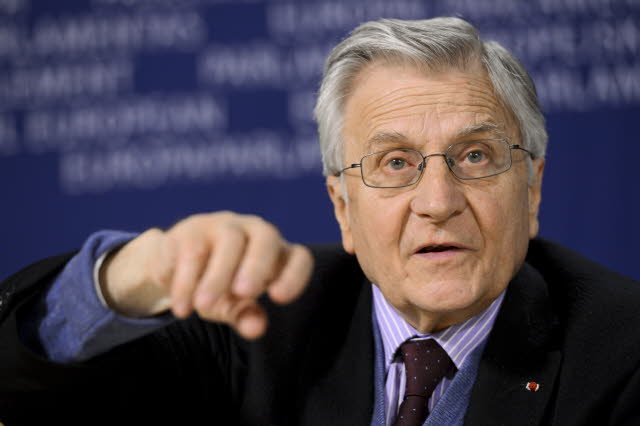At a hearing dealing with the Troika’s role and operations, Mr. Trichet defended the ECB’s decisions: “I cannot say we were 100% right, but our actions proved effective over time.” “We were in the worst possible world.”

From our correspondent in Strasbourg Alfonso Bianchi
The direct action of the ECB in Spain and Italy was essential to avoid an unrecoverable crisis in both countries, according to Jean-Claude Trichet, former ECB President. During a hearing at the Economic and Monetary Affairs Committee dealing with the ECB/IMF/EU Commission Troika’s role and operations, Mr. Trichet said “If the ECB hadn’t bought Italian bonds and Spanish bonos, we would not have been here talking about the current situation so quietly.” Especially in August 2011, the situation of the Eurozone had been “dramatic” and “Spain and Italy were under attack” on the markets. That was the time of the notorious letters to certain countries – Italy, where Silvio Berlusconi was government’s PM, and Spain: these letters required reforms in order to obtain ECB’s aid. That is, vigorous buy of government bonds in the secondary market. This was quite an unusual action, seen as a massive interference into a Member State’s internal issues, considering this was not the role of a monetary authority.
“We decided it was possible to help reactivate, and this is ECB’s main target, the correct transmission of monetary policy” he said. “We decided to intervene in order to prevent ECB, Member States and EU from losing their credibility in front of the world.” This is why the ECB “did not negotiate” the terms of a possible action with Spain and Italy, even if the letter, Mr. Trichet assured, contained “what I thought it was the best possible solution to exit such a dramatic situation.” In retrospect, he said, “I cannot say I was completely right,” but “I can say it definitely was effective in helping Spain exit the crisis.” “In an ideal world this would not have been done, but we were in the worst possible world”, he added.
In his replies to MEPs, the former ECB President defended Troika’s decisions, which had to face extremely difficult circumstances during the “worst crisis after the second WW.” Mr. Trichet admitted that “most times” EU and governments’ decisions “could have been braver and faster,” but “failing them, we would have had even a worse crisis, the worst since the first WW.” At the time, “the main issue was that some countries spent more than what they earned” and that “savers said ‘we trust you no longer, we are not funding your deficit forever.” This was the time for the Troika to intervene, according to Mr. Trichet: “The international community” he said “accepted to help those states solely in case of them creating a new internal and external balance” given that “no solution, no way out was possible otherwise.”










